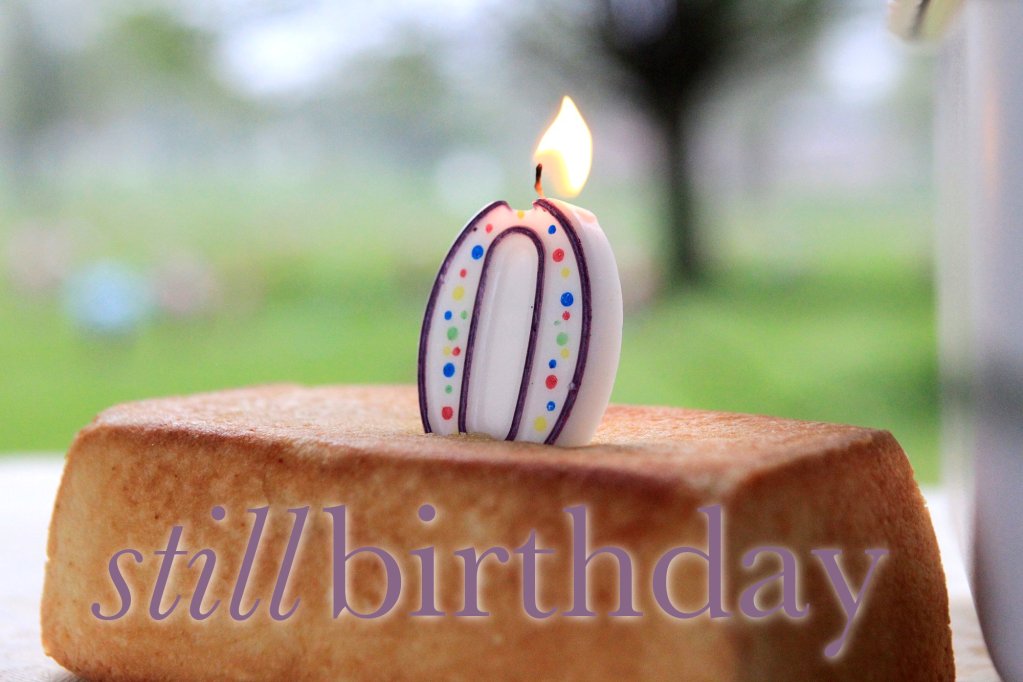The following segments are derived from extremely helpful slideshows presented by credible professionals in the field of grief and loss. I’ve put them in this written format to ensure that anyone can access them easily. I’d strongly encourage you to please visit the links at the end of each section, as each slideshow has a tremendous amount of information regarding the NICU, loss, and grief experiences.
What is Grief? (27)
- Grief is a normal response to an abnormal life event.
- A grieving person may experience physical and emotional symptoms along with intellectual, social and occupational responses.
- Grieving people may also question their spiritual beliefs; many experience a crisis of faith as part of the grief response.
The Body’s Response to Grief (28)
- A person experiencing a loss may experience somatic (body) complaints that include: fatigue, aches, insomnia, gastrointestinal symptoms, nausea, chest pressure, palpitations, shortness of breath, back pain, stomach pains, anxiety and panic attack.
Stages of Grief (30)
- Stages of Grief – DABDA
- Denial
- Anger
- Bargaining
- Depression
- Acceptance
- These stages should only be viewed as a tool to help frame and identify what a grieving person might be feeling, not absolutes of what they should be feeling or experiencing.
Tasks of Grief (31)
- In the 1980’s, William Worden looked at grief as a series of tasks that one works through:
- Task One: to accept the reality of the loss
- Task Two: to work through the pain of grief
- Task Three: to adjust to a different type of environment
- Task Four: to emotionally relocate the loss (deceased) and move on with life
Key Facts about Grief (32)
- Pastor Bob Deits, author of Life after Loss, a classic in the field of loss and grief, describes four key facts about grief:
- The way out of grief is through it.
- The very worst kind of grief is yours.
- Grief is hard work.
- Effective grief is not done alone.
Companioning the Grieving (33)
- Alan Wolfelt, Ph.D. talks of companioning as:
- honoring the spirit.
- learning from others.
- being curious and being still.
- walking alongside.
- listening with the heart.
- bearing witness to the struggles of others.
- being present to their pain.
- respecting disorder and confusion rather than imposing order and logic.
- Companioning is NOT about thinking you are responsible for finding the way out of grief.
Intuitive (Emotional) Grievers (46)
- Intuitive grievers feel grief intensely and find expressing emotions by talking or crying is helpful.
- They are comfortable with expressing strong emotions, are sensitive to their feelings, and are aware of the feelings of others.
- Sharing feelings about the loss and providing support to others can be very healing for the intuitive griever.
- The intuitive grief style or emotional style is the one often associated with the typical female grief.
Instrumental (Physical) Grievers (47)
- Instrumental grievers experience grief, but it is less intense or emotional and more physical than the intuitive griever.
- Instrumental grievers like to think or problem solve ways of coping with the experience.
- For instrumental grievers the grief tends to be more private or hidden.
- They may be reluctant to talk about their feelings.
- The instrumental grief style or physical style is the one often associated with the male grief.
The above information is borrowed from the work of Kirsti A. Dyer MD, MS, FAAETS, NCBF Physician, Grief Educator, College Instructor from the Grief in the NICU: Identifying, Understanding and Helping Grieving Parents slideshow (marked by number)
Basics of Coping (34)
- Take it one hour at a time, one day at a time.
- Maintain a normal routine. Keep doing normal activities.
- Get enough sleep or at least enough rest.
- Try to get some regular exercise; even walking helps relieve stress, tension and improve moods
- Maintain a healthy, balanced diet. Limit junk food.
- Drink plenty of water.
- Avoid using alcohol or other drugs to mask the pain.
- Do those things and be with those who comfort, sustain and recharge you.
- Remember past losses and the coping strategies used to survive them. Use these inner strenths again.
Remember TAKE CARE:
- Time is needed to handle the grief.
- Avoid alcohol or other medications.
- Keep to some routine or schedule.
- Eat a balanced diet. Focus on healthy foods and water.
- .
- Converse with others, especially those who have “been there” and “survived that.”
- Art can help keep the hands busy, whether journaling, building, crafting, or other.
- Rest and sleep are important to help the body heal.
- Exercise to reduce stress and improve one’s mood.
Helpful Strategies (35)
Initial Minutes:
- Reassure parents that what they are feeling is normal.
- Listen to their story of loss. It provides comfort.
Early Hours:
- Advise parents about available resources.
- Share information that others have found helpful.
Later (Weeks):
- If a parent remains distressed after several weeks or is profoundly affected, a referral to a professional grief counselor would be beneficial.
Grief Responses (36)
- Each person experiences grief in his or her own unique way. People have very different grieving styles.
- It can be very helpful for parents to realize that each of them may respond quite differently.
- Parents can be encouraged to grieve separately as well as together; this enables each person to express grief in his or her own unique style and way.
Conventional and Masculine Grievers (37)
Conventional Grievers:
- Identify others as sources of support
- Openly expresses feelings
- Temporarily withdraws from responsibilities
- Allows time to experience inner pain
- Joins support groups
- Chooses ways to express feelings – journal, quilt, project
Masculine Grievers:
- Shelves thoughts/feelings to cope with present
- Chooses active ways of expressing grief – hobbies
- Uses humor to express feelings and manage anger
- Seeks companionship
- Uses solitude to reflect and adapt
- Writes – journals
Cultural Aspects of Grief (38):
- Language – use interpreters as necessary.
- Social Unit, Role of Elders – determine who makes decisions.
- Family History – consider possible prior discrimination or challenges.
- Gender Differences – how their culture regards men and women.
- Spiritual/Religious Beliefs – Role of Hope
- View of the Future
- Expressions of Grief – determine how their culture expresses grief.
Perinatal PTSD Questionnaire (45)
Have you had the following experiences within 6 months of your birth experience? “Yes” answers are only those that you experienced for longer than 1 month, in that 6 month timeframe (a “yes” answer to 4 or more would be an indication of referral for further evaluation):
- Did you have bad dreams of giving birth or of your baby’s hospital stay?
- Did you have upsetting memories of giving birth or of your hospital stay?
- Did you have any sudden feelings as though your baby’s birth was happening again?
- Did you try to avoid thinking about childbirth or your baby’s hospital stay?
- Did you avoid doing things that might bring up feelings you had about childbirth or your baby’s hospital stay (for example, not watching a TV show about babies)?
- Were you unable to remember parts of your baby’s hospital stay?
- Did you lose interest in doing things you usually do (for example, did you lose interest in your work or family)?
- Did you feel alone and removed from other people (for example, did you feel like noone understood you)?
- Did it become more difficult for you to feel tenderness or love for others?
- Did you have unusual difficulty falling asleep or staying asleep?
- Were you more irritable or angry with others than usual?
- Did you have greater difficulties concentrating than before you gave birth?
- Did you feel more jumpy (for example, did you feel more sensitive to noise or more easily startled)?
- Did you feel more guilt about the childbirth than you feel you should have?
- Would you like to talk to someone about your responses to these questions or feelings about this questionnaire?
The above information is borrowed from the work of Kirsti A. Dyer MD, MS, FAAETS, NCBF Physician, Grief Educator, College Instructor from the Identifying, Understanding and Working with Grieving Parents in the NICU slideshow (marked by number)
“Childbearing losses may affect women and their families for a lifetime. The affects of childbearing losses may occur well after the childbearing years have ended.” -Wisconsin Association of Perinatal Care (2)
“Grief reflects the psychological and spiritual attachment to the baby that was lost physically and strongly resists abandonment of the baby. It is based on the primeval energy of parental attachment, which is used, although there is no baby.” -Leena Valsanen, Author, Family Grief and Recovery Process When a Baby Dies: A Qualitative Study of Family Grief and Healing Processes After Fetal or Baby Loss. Department of Psychiatry and Department of Nursing, University of Oulu, Finland, 1996. (3)
Perinatal losses need to be treated as unique bereavements that are different from other types of bereavements. According to Leon, 1990, these losses: (4)
- disrupt a significant milestone (pregnancy, birth, infancy)
- cause isolation from peers
- cause inner conflicts for the griever
- reorganize self esteem
A 1995 study by Zeanah et al reported that stillborn and the deaths of infants are equally painful to parents and that the length of the gestation does not effect the extent of the parental attachment. (5)
Mothers and Grief (9)
- Mothers who experience the sudden death of a child (eg stillbirth, SIDS) tend to have more intense grief reactions than those mothers whose children die as a result of a chronic condition.
- Mortality rates are higher in mothers who have experienced the death of a child (2003 study conducted in Denmark).
- 20% of mothers who have experienced stillbirth, experience a prolonged episode of depression and one in five mothers suffers from post traumatic stress disorder (2002 UK study).
- Mothers who experience stillbirth are at risk of developing postpartum major depression. The risk of depression is highest within the first six months after delivery. The mothers who are at highest risk of becoming depressed are those who fail to show any signs of grief during the first two weeks after the stillbirth or those whose grief does not show any signs of diminishing six to nine months after the stillbirth.
- Thoughts of suicide are not unusual in the aftermath of stillbirth. 30% of mothers report having had such feelings.
Fathers and Grief (14)
- Because fathers tend to be less verbal about their grief, their grief has been underestimated in grief research.
- Grief in fathers tends to peak around 30 months after the death of the baby, whether that baby is stillborn or whether that baby dies shortly after birth (2002 study, University of Queensland, Australia).
- Study conducted by Swedish researchers (2001) concluded that fathers’ “general trust in life and the natural order was suddenly and severely tested by the death of their child, which they perceived as a terrible waste of life.” Being able to protect their partner and grieve in their own way was important to the fathers interviewd by this group of researchers.
- Fathers initially grieve by doing – by caring for the mother.
- They may try to mask their own grief in an effort to protect her.
- Father’s can have a difficult time separating their own grief from the mothers grief.
- Father’s can experience both physical and emotional pain in response to their grief.
- The father’s grief feelings may not be validated to the same degree as the mother’s grief feelings.
Children’s Grief (16)
- Children who have lost a sibling through stillbirth may tend to minimize or delay their own grief symptoms in order to avoid “upsetting” their parents.
- Girls who are age 7-12 and who had strongly identified with their mother’s pregnancy are especially likely to want to “fix” their mother’s grief.
- Children don’t have the same support systems as adults to help them cope.
- Children who have lost a sibling through stillbirth suffer in other ways as well. At the very time they need their parents most, their grieving parents may be emotionally treading waters themselves.
Grandparents and Grief (18)
- Grandparents grieve a stillbirth on two levels: they grieve the death of their grandchild and they hurt because their children are hurting.
- Sometimes a bereaved grandmother will try to “shut down” her daughter’s grief – an indication about her own feelings about the power of grief and the fact that women are vulnerable to suffer losses like stillbirth.
The Unholy Trio: Grief, Trauma, and Guilt (21)
- Trauma can freeze or delay grief, but it doesn’t make grief go away.
- Complicated Grief is believed to occur in 21% of cases of perinatal bereavement.
- The loss of one or more multiples can take a particularly long time for a parent to process. One study found that it took three to five years to be able to incorporate their loss without significant sadness or depression. Part of the challenge is having the language to label surviving children (eg two surviving triplets are not twins).
- Dealing with guilt (in most cases, unwarrented guilt) and regret about difficult decisions that were made with regard to their baby’s stillbirth only adds to the pain.
A study by researchers at Millersville, Pennsylvania (2001) found that the majority of parents describe their child’s death as precipitating a crisis in meaning that resulted in stronger connections with other people, desire to engage in activities that would give their child’s life and death meaning, enriched beliefs/values, personal growth, and feelings of connection with the child who had died.
The above information is borrowed from the work of Ann Douglas, Author, Speaker of Canadian Foundation for the Study of Infant Deaths Converance from the Still Unanswered, Always Remembered slideshow (marked by number)











Leave a Comment